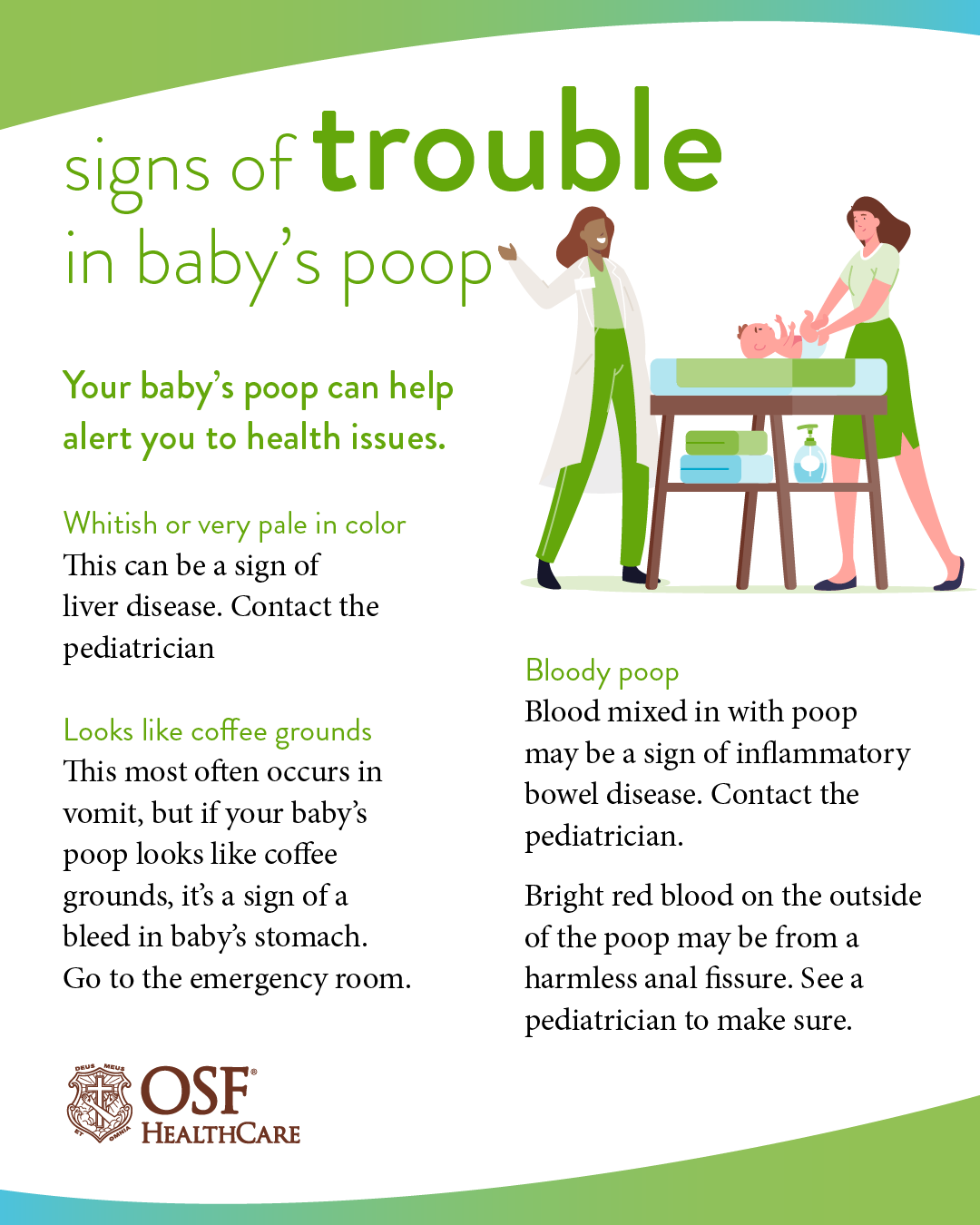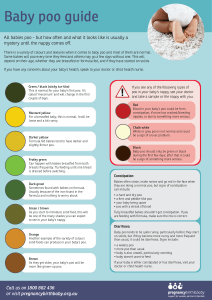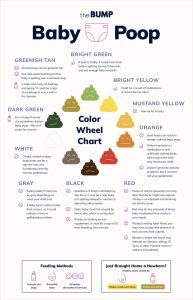To get a baby to poop, try gentle tummy massages or bicycling their legs to stimulate bowel movement. Babies can experience constipation, which can cause discomfort.
It is important to help them regulate and promote regular bowel movements. There are simple techniques that can help get a baby to poop. These include gentle tummy massages, where you use circular motions on their abdomen. Another technique is bicycling their legs, which helps stimulate the bowel movement.
By following these methods, you can help your baby relieve constipation and maintain regular bowel movements.

Common Causes Of Constipation In Babies, Get baby to poop
Constipation in babies is a common concern for many parents. It can be distressing to see your little one uncomfortable and struggling to have a bowel movement. Understanding the common causes of constipation can help you take proactive steps to prevent and address it. In this article, we will explore three key factors that can contribute to constipation in babies: dietary factors, dehydration, and medical conditions.
Dietary Factors
What your baby eats plays a crucial role in their digestive health. Some common dietary factors that can contribute to constipation include:
- Low fiber intake: A lack of fiber in your baby’s diet can slow down the passage of stool through the intestines, leading to constipation. Offering age-appropriate high-fiber foods can help regulate their bowel movements.
- Introduction of solid foods: When you start introducing solid foods to your baby, their digestive system needs time to adjust. Certain foods, such as bananas, rice cereals, and dairy products, can be binding and cause constipation. It’s important to introduce a variety of fruits, vegetables, and whole grains to promote regular bowel movements.
- Inadequate fluid intake: Fluids are essential for maintaining regular bowel movements. If your baby is not getting enough fluids, their stools can become hard and difficult to pass. Ensure that your little one is adequately hydrated by offering breast milk, formula, or water, depending on their age.
Dehydration
Dehydration can be a significant contributor to constipation in babies. Their immature bodies are more susceptible to fluid imbalances. Here’s what you need to know about dehydration and constipation:
| Signs of Dehydration | Possible Impact on Bowel Movements |
|---|---|
| Less frequent urination | Decreased moisture content in the intestines, leading to hard stools |
| Dry mouth and lips | Inadequate saliva production, affecting digestion and stool formation |
| Sunken fontanelle (soft spot on the baby’s head) | Indication of severe dehydration, which can lead to infrequent bowel movements |
Keeping your baby well-hydrated is key to preventing constipation. Ensure that they are getting enough fluids through breastfeeding, bottle-feeding, or age-appropriate water intake.
Medical Conditions
In some cases, constipation in babies may be caused by underlying medical conditions. It’s important to be aware of these possibilities and seek medical advice if you have any concerns. Some medical conditions that can contribute to constipation include:
- Hirschsprung’s disease: This rare condition affects the muscles in the colon, making it difficult for stool to pass through.
- Thyroid problems: An underactive thyroid gland can slow down the baby’s metabolic rate, including their digestion.
- Anal fissures: Painful tears or cracks in the anus can cause your baby to hold back their bowel movements due to fear of pain.
If you suspect that your baby’s constipation may be due to an underlying medical condition, it’s crucial to consult with their pediatrician for proper diagnosis and treatment.

Signs Of Constipation In Babies
Baby constipation is a common concern for parents. It’s crucial to recognize the signs of constipation in babies to address the issue promptly. Understanding these signs can help you take the necessary steps to alleviate your baby’s discomfort.
Hard Stool
Babies experiencing constipation often pass hard, compacted stool. This can cause discomfort and difficulty during bowel movements. The stool may appear dry and pebble-like, indicating a lack of proper bowel movement.
Fussiness And Irritability
Constipated babies may display increased fussiness and irritability. Due to the discomfort caused by constipation, babies may become restless and exhibit signs of distress. They may cry more frequently and have difficulty calming down.
Infrequent Bowel Movements
When a baby is constipated, they may have infrequent bowel movements. This could lead to a noticeable decrease in the number of dirty diapers. Keeping track of your baby’s bowel habits can help identify any irregularities.
Tips To Help Your Baby Poop
Babies have delicate digestive systems, and constipation can be a common concern for parents. If your little one is struggling to poop, there are several effective strategies you can try. By implementing simple tips to help your baby poop, you can provide relief and support their digestive health.
Increase Fluid Intake
Ensure your baby is getting enough fluids throughout the day. Increasing their intake of breast milk or formula can help soften the stool and encourage bowel movements. Offering small amounts of water, especially if your baby is over six months old, can also aid in preventing constipation.
Introduce High-fiber Foods
If your baby has started solids, incorporate high-fiber foods into their diet such as pureed prunes, peas, or pears. These can add bulk to the stool and promote regular bowel movements. Be mindful of potential allergens and introduce new foods gradually to monitor for any adverse reactions.
Massage Baby’s Tummy
Gentle tummy massages can provide relief for constipated babies. Using a warm, but not hot, cloth, apply gentle pressure to the baby’s abdomen in a clockwise direction. This can help stimulate the digestive system and encourage bowel movements.
Home Remedies For Constipation
Babies can experience constipation, which can be distressing for both them and their parents. Before turning to medication, there are several safe and effective home remedies that can help relieve constipation in babies. In this article, we will explore three simple remedies that can provide relief.
Warm Bath
A warm bath can work wonders in relieving constipation in babies. Fill a bathtub with comfortably warm water and gently place your baby into it. Let them soak for around 10-15 minutes while ensuring their safety by providing constant supervision. The warm water helps relax your baby’s muscles and may stimulate bowel movements. To make the bath even more soothing, you can add a few drops of baby-friendly essential oils, such as lavender or chamomile, which can have a calming effect.
Bicycle Leg Movements
Bicycle leg movements are a gentle exercise that can help alleviate constipation in babies. Lay your baby on their back on a comfortable surface, such as a changing table or play mat. Gently hold their legs and move them in a cycling motion, imitating a bicycle ride. This exercise helps to stimulate the baby’s intestines, promoting bowel movement. Make sure to keep your baby engaged and entertained during this activity to make it a pleasant experience for both of you.
Tummy Time
During tummy time, your baby lies on their stomach, which can help relieve constipation. Lay a soft blanket on the floor and place your baby gently on their tummy. The pressure on the abdomen can encourage the bowels to move, promoting regular bowel movements. You can make tummy time more enjoyable by placing interesting toys or objects within their reach to keep them engaged. Ensure that you closely supervise your baby during tummy time to ensure their safety.
When To Seek Medical Help
Seek medical help if your baby is having trouble pooping despite trying home remedies. Constipation in infants can sometimes require professional intervention to rule out serious issues and ensure your baby’s health is on track. If your baby’s poop struggles persist, consult a healthcare provider promptly.
Persistent Constipation
If constipation continues despite home remedies, consult a pediatrician for evaluation.
Blood In Stool
Seek immediate medical attention if blood is present in your baby’s stool.
Abdominal Pain
Persistent abdominal pain signals the need for urgent medical assessment.

Preventive Measures
Baby’s bowel movements are crucial for their well-being. Implementing preventive measures can help ensure regular and healthy poops.
Establish A Routine
- Set a consistent poop time to help regulate baby’s bowel movements.
- Follow a schedule for feeding, napping, and diaper changes.
Encourage Physical Activity
- Engage in gentle tummy time to stimulate digestion.
- Incorporate age-appropriate exercises to promote bowel movements.
Monitor Baby’s Diet
Pay careful attention to what your baby eats for optimal digestive health.
The Role Of Probiotics
Probiotics play a vital role in maintaining a healthy gut for people of all ages, including babies. These beneficial bacteria help in digestion, strengthen the immune system, and regulate bowel movements. When it comes to getting your baby to poop regularly, probiotics can be a game-changer. In this article, we will explore the role of probiotics in promoting healthy bowel movements and learn how to choose the right probiotic for your little one.
Introduction To Probiotics
Probiotics are living microorganisms that provide numerous health benefits. These friendly bacteria naturally occur in the body, particularly in the digestive tract. They aid in breaking down food, absorbing nutrients, and maintaining a balanced gut environment. For babies, who are still developing their immune system and digestive functions, introducing probiotics can help regulate their bowel movements and prevent constipation.
Choosing The Right Probiotic For Your Baby
When it comes to choosing a probiotic for your baby, it’s essential to select the right one that meets their specific needs. Here are some key factors to consider:
- Strain diversity: Look for a probiotic that contains multiple strains of bacteria. Different strains offer different benefits, and a diverse mix can provide a more comprehensive support system for your baby’s gut health.
- CFU count: CFU, or colony-forming units, indicate the number of viable bacteria present in a probiotic supplement. Ensure that the chosen probiotic has an appropriate CFU count for your baby’s age and needs.
- Age-appropriate: Choose a probiotic specifically formulated for infants and young children. The strain combination and dosage will be tailored to support their developing digestive system.
- Quality: Opt for a reputable brand that undergoes third-party testing and has a good track record. This ensures that the probiotic supplement meets safety and quality standards.
Keep in mind that every baby is unique, and what works for one may not work for another. It’s always a good idea to consult with your pediatrician before introducing any new supplements to your baby’s routine.
Consulting With A Pediatrician
When it comes to addressing your baby’s bowel movements, seeking professional advice from a pediatrician is crucial. A pediatrician can provide the necessary expertise to assess your baby’s condition and offer tailored advice for managing their bowel movements effectively. Consulting with a pediatrician ensures that you receive accurate information and appropriate guidance for your baby’s specific needs.
Importance Of Professional Advice
The importance of seeking professional advice from a pediatrician cannot be overstated. Pediatricians are trained to understand the intricacies of infant health and can provide a comprehensive assessment of your baby’s condition. Their expertise allows for a more accurate diagnosis and personalized treatment plan, taking into account any underlying health concerns or potential complications.
Treatment Options
Once you consult with a pediatrician, they can recommend suitable treatment options based on your baby’s individual needs. This may include dietary adjustments, changes in feeding habits, or the use of specific baby-friendly medications to alleviate any discomfort or constipation. The pediatrician can guide you through the available options and help you make informed decisions about the best course of action for your baby.
Long-term Solutions
Seeking professional advice also empowers you to consider long-term solutions for your baby’s bowel movements. A pediatrician can provide valuable insights into preventive measures, dietary modifications, and ongoing care to support your baby’s digestive health in the long run. By consulting with a pediatrician, you can work towards establishing healthy bowel habits for your baby and addressing any underlying issues effectively.
How Can I Encourage My Baby To Poop?
Encourage baby to poop by giving tummy massages, bicycling legs, warm baths, gentle belly rubs, and ensuring hydration.
How Long Can Babies Go Without Pooping?
Babies can go up to a week without pooping, but it’s important to keep an eye on their overall well-being. If you have concerns, consult a doctor for guidance.
How Can I Make My Baby Poop Faster Home Remedies?
Try massaging your baby’s tummy or giving them a warm bath. Encourage movement, like bicycle kicks. Consult a pediatrician if problems persist.
How Can I Get My Breastfed Baby To Poop?
Ensure your breastfed baby is well-hydrated and consuming enough food, monitor their feeding frequency, and try gentle tummy massage.
Conclusion
Helping your baby get regular bowel movements is crucial for their overall health and well-being. By following the tips provided in this blog post, such as maintaining a healthy diet, establishing a consistent routine, and using gentle massage techniques, you can effectively stimulate their digestion and encourage regular bowel movements.
Remember, always consult with your pediatrician if you have concerns about your baby’s bowel movements.




